Uganda Safari Travel Tips and Advice
Ecologically, Uganda is where the East African savannah meets the West African jungle. Uganda is truly the pearl of Africa. No where else on the continent of Africa can one encounter the highly endangered mountain Gorillas prowling the misty mountain forests in the morning and track wild chimpanzees through the rainforest undergrowth in the afternoon, then the next day navigate tropical channels teeming with hippo and crocodiles. But first things first; here is what you need to know as you plan to visit Uganda.
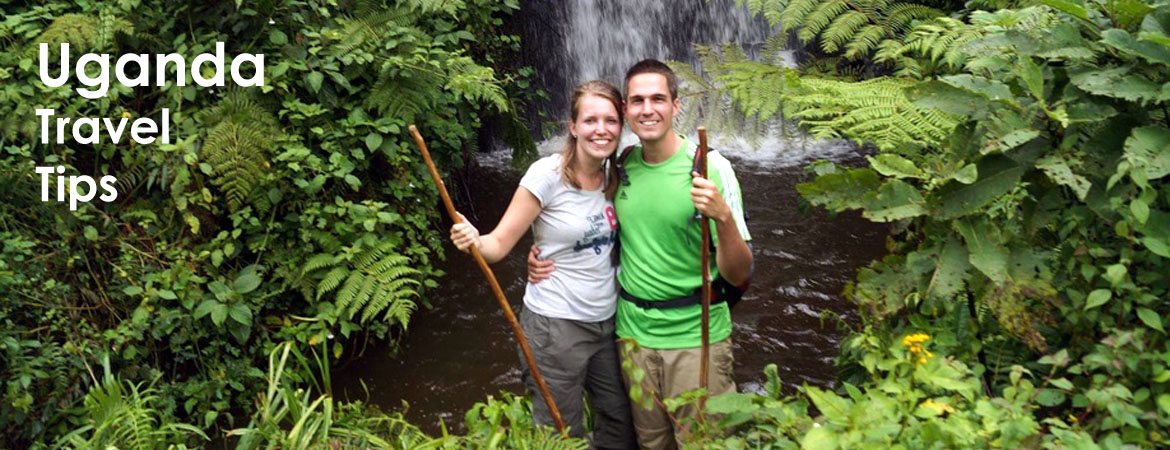
1. About Uganda - An Introduction
Uganda, officially the Republic of Uganda is a landlocked country in East-Central Africa. It is bordered to the east by Kenya, to the north by South Sudan, to the west by the Democratic Republic of the Congo, to the south-west by Rwanda, and to the south by Tanzania. The southern part of the country includes a substantial portion of Lake Victoria, shared with Kenya and Tanzania. Uganda is in the African Great Lakes region. Uganda also lies within the Nile basin, and has a varied but generally a modified equatorial climate. Uganda lies astride the equator in eastern africa between longitudes 29 degrees east and 35 degrees east and between latitudes 4 degrees north and south, at an average altitude of 1,100 meters above sea- level. Her total area is 236,580sq.km. River Nile has its source in Lake Victoria, Uganda.
2. How To Get To Uganda
From outside East Africa, Uganda can be accessed by either road or Air and mostly by Air to Entebbe Airport. Water transport can also be used to travel in and around our destinations especially the ferry crossing from the Southern part of Murchison Falls National Park to the Northern part of Murchison Falls National Park. There are Launch cruises to the bottom of the falls in Murchison Falls National Park and along the Kazinga channel in Queen Elizabeth National Park. Also Ssese islands are easily accessed by water from either Nakiwogo or Bukakata, some business people use the ferry to travel to Kisumu in Kenya and Mwanza in Tanzania.
3. Air Travel To Uganda
Depending on where you are coming from, Uganda can be accessed by international airlines, and inter-Africa airlines. Also domestically, only one airline connects you to the different destinations in the country that is; Eagle Air. International Airlines include; Turkish Airlines, Qatar Airways, British Airways, KLM Royal Dutch Airlines, Emirates Airlines, and Brussels Airlines. Inter-Africa airlines include; Ethiopian Airlines, South African Airways, Egypt Air, Air Tanzania, Air Uganda, Kenya Airways, Rwandair Express, Fly 540, and Precision Airlines. There are also charter flights arranges to the different parts of the country offered by Kampala Aero Club, Ndege Juu Ya Africa, Air Serv, and Eagle Air.
4. Getting Around Within Uganda
Air Uganda offers a domestic service to some of the major towns. Air Charter is also available. Usually you will be required to pay for flights in hard currency. There are train services from Kampala to Kasese and Tororo but the service is slow, uncomfortable and erratic. Lake Victoria has a ferry service which connects Port Bell and the Ssese Islands. Bus services connect all the main towns but they can be slow, crowded and they make frequent stops. Minibuses and shared taxis are a good way of getting around. They have fixed rates and leave when full. Avoid motorcycle (BodaBoda) rides as they tend to make frequent accidents.
5. Do I Require a Visa To Enter Uganda?
Yes! With effect from March 1, 1999, the Government of Uganda introduced visa requirements for all visitors entering Uganda. However this is in exemption of the following countries: East African Community (EAC) Citizens Nationals of COMESA countries( Angola, Comoros, Eritrea, Kenya, Malawi, Mauritius, Madagascar, Rwanda, Seychelles, Swaziland, Tanzania, Zambia, Zimbabwe) Other countries e.g. Antigua, Bahamas, Barbados, Belize, Fiji,Gambia, Grenada, Jamaica, Lesotho, Malta, Sierra Leone, Singapore, Solomon Islands, St. Vincent & The Grenadines, Tonga, Vanuatu, Italy (Only diplomatic passports) and Cyprus.
6. How Do I Apply for Uganda Visa?
Visitors to Uganda must have a valid visa in accordance with national immigration laws, guidelines and formalities. The most convenient Way for Tourists to obtain visas for Uganda is on arrival at the airport in Entebbe if you are flying. By land, you can obtain the Uganda Visa at any entry point into the country. You can also acquire a visa at Uganda's High Commission or embassy in your country of residence or on arrival at Entebbe International Airport. The charges for Uganda's Visa start from US$ 50. East Africa Tourist Visa: The East Africa Tourist Visa will allow travel between Kenya, Rwanda and Uganda with the same multiple entry visa. This visa costs US$100 and is valid for 90 days as long as one does not travel outside the partnering countries. Uganda visas can now be obtained online at: visas.immigration.go.ug
7. What Immunizations Do I Need For Travelling to Uganda?
You should seek medical advice from your local health practitioner before travelling to Uganda and ensure that you receive all of the appropriate vaccinations. As a guide Polio, Diphtheria, Hepatitis A + B and Tetanus are strongly recommended. Following an outbreak of yellow fever in April 2016, the Ugandan Ministry of Health now requires all travellers provide proof of yellow fever vaccination. Yellow fever vaccine is therefore essential. Expecting to get closer to wild animals, Rabies and Meningitis vaccination should be prioritized. There is a high risk of malaria in Uganda so it is very important to check with your doctor before you go, to see whether malarial medication is required for the areas you are visiting. Generally, it is good practice to avoid mosquito bites by wearing long sleeved, light coloured clothes and wearing a mosquito repellent that contains at least 50% DEET. For more information on the malaria risk in Uganda visit the NHS Travel pages or the CDC Traveler's Health pages.
8. Must Bring Items To Uganda
A valid passport is mandatory, and visa requirements should be checked before you travel. To make the most of the game reserves and national parks, carry binoculars and field guides. Photographers will need a zoom lens for wildlife (70-300 or similar). Toiletries and other essentials can be bought in the cities.
9. Money Matters and Credit Cards in Uganda
Uganda is a cash-based society where the US dollar reigns as the currency of choice, where the use of credit cards is limited because Traveller Cheques are not accepted everywhere and it is a cumbersome process to get them exchanged into Cash. Credit Cards can be used but normally there is a 5% fee when you use a credit card. ATM machines are found in major towns, have a Visa ATM Card – Master Card can be used at limited banks, forget American Express Cards with ATM machines. In Uganda it is about Cash and here is the information you need to make right the money choices, plus our page on money will give tips on keeping your cash safe on a Safari or visit Uganda. You can use a credit card in many places, but there is a surcharge of 5% or more in most cases.
10. Personal Security and Safety in Uganda
Be sensible and practical. Would you do this back in your own country? Uganda, for the most part, is safe and enjoyable. Safety and Security is one of the things on the minds of travelers as they approach journeying to Uganda. Uganda is one of the safest countries in Africa and Kampala one of its safest Capitals, however, it will be prudent to be wise especially when it comes to money handling. A night out on the town in Kampala is best done with a Ugandan at your side. Be aware of a few things that will protect your valuables. If you are on safari it is the safest place to be in Uganda.
11. Major Health Hazards in Uganda
It is advisable to take out emergency medical insurance prior to entering Uganda. Bilharzia: The bilharzia parasite is found in many lakes, streams and rivers on the continent. Avoid swimming in them! Vaccinations for cholera, tetanus and yellow fever are advised. Malaria is virulent in Uganda. Take prophylactics two weeks before arrival and continue two weeks after leaving. Your chemist or doctor can advise you of the most suitable drug available as certain drugs lose their effectiveness. Tap water in the major towns is purified and perfectly safe to drink. In the more remote areas always boil it first, except if you’re staying at a lodge or hotel where drinking water is perfectly safe. Bottled water is readily available in the bigger towns.It is advisable to buy travel insurance covering accidents, illness or hospitalization for the period of your stay.
12. Is Tap Water Safe To Drink in Uganda?
Drink only bottled water or from flasks of filtered and boiled water provided by most hotels and lodges.
13. Where Can I Buy Medicines in Uganda?
Travellers should carry an adequate supply of medicines and first aid accessories with them as supplies especially away from major towns, are limited in Uganda. Most chemists in the major towns are open from 08h30 to 12h30 and 14h00 to 17h00. Monday to Friday and 08h00 to 13h00 on Saturdays. There are very few emergency chemists open after hours or Sundays.
14. Travel and Medical Insurance in Uganda
If you need medical care whilst in Uganda, it is best to be aware that medical providers may not accept payment through your insurance company. In these circumstances you will have to pay in full after your treatment and file a claim with your insurance company for reimbursement. Therefore you should have access to cash, either from a credit card or by wire transfer. If you need assistance contact the country's local embassy or representative. To be compensated you must be treated by licensed medical personnel and provide your insurance company with proper documentation and receipts. It is advisable to always ensure you have a comprehensive travel insurance policy which covers you for repatriation to your home country.
15. Best Time To Visit Uganda
Uganda’s year around Holiday Weather. Uganda has the gift of Holiday weather year around. Uganda can be visited at any time, though mountain hikes, gorilla tracking and other forest walks are more challenging during the rains, which generally peak over mid-September to November and March to May. The best time to visit Uganda is late December to late February, as the weather at this time of year is generally dry (though hot). A close second is the mid-June to mid-August period. However you can still get around outside of these dry tropical months. There are two reasons, one is its place on the equator and the other reason is Uganda’s elevation. We have two rainy seasons, but even during them most would consider it Holiday Weather all-year-long. Uganda's climatic seasons always change from year to year. However, it is always a little dry throughout the year apart from the rainy seasons between April - May and September - November.
16. What Can I See in Uganda?
Uganda, the Pearl of Africa is a landlocked country however it has a lake that is as large as a Sea, the tallest Mountain Range, the snow-capped Rwenzori Mountains of the Moon, Kidepo Valley Park, remote, unvisited, Africa as it used to be 50 years ago in the lands of the Karamojong Warriors – Herders, the remote Ik People on Mount Morungole where the only Trail is a footpath. Murchison Falls Park, that has a river run through it, the River Nile, a combination of abundant wildlife and the most powerful waterfall in the world, Murchison Falls, There is Queen with its Tree Climbing Lions and explosion crater lakes, Kibale Forest Jungle with the largest Chimpanzee Population in East Africa and Bwindi Impenetrable Forest with the highest concentration of endangered Mountain Gorillas. It is no wonder that Winston Churchill popularized the term of Pearl of Africa.
17. How Affordable is Travel in Uganda?
If you plan on doing gorilla trekking during your time in Uganda, be aware that a permit can cost anything upwards of about USD $600. As for other expenses, a mid-range hotel room will usually cost between USD $30-50 per night while dorms are around USD $8-10. Street food is incredibly cheap, costing less than a dollar in some cases, and sit-down meals can be found for between USD $5-10 for a feast of African or Indian food. When it comes to going out, a pint of beer won’t cost more than USD $2 in a bar and will be even cheaper in a supermarket. Transport isn’t usually too expensive with matatu (mini bus) rides often costing around 50 cents or less. Private taxis are more expensive and can set you back up to USD $10.
18. Where do I Find Mountain Gorillas and Chimpanzees?
Mountain gorillas can be found in both Bwindi impenetrable forests and Mgahinga gorilla national park, all found in the western part of uganda. more information. Chimpanzees can be found almost where Mt. Gorillas exist, similarly, Monkeys. The Ngamba Island on L. Victoria have been reserved for Chimpanzees and visitors and tourists always storm the Island throughout the year to enjoy these playful creatures. Among the few remaining Mt. gorillas worldwide, Uganda has the largest percentage of these. Over 60% of the world's Mt. gorillas are in Uganda including the famous Silverback and blackback. Please Remember, Gorilla tracking is strictly for those who are 15 years and above. It is always advisable to seek more information from the Uganda Wildlife Authority when in need of a tracking permit.
19. Where Do I Get The Gorilla Tracking Permits?
Gorilla tracking is limited to only 18 people per day and the permits are available only for people above 18 years. These can be obtained from the Uganda Wildlife Authority (https://www.ugandawildlife.org/). AfriChoice will always purchase the permits in advance for your convenience. Gorillas are available all year through, but tracking is suitable during fairly dry seasons of Febraury to March and July to September.
20. How Much Should I Tip in Uganda?
A tip of 10% for good service is adequate. Service charges are frequently added and it is usual to tip a tour driver or guide at least US $10 a day.
21. Any Advice on Electricity Supply in Uganda?
240 volts is the voltage in Uganda and you will need a UK plug. You can buy a converter plug that will make your appliance fit locally. The power supply is iffy in Uganda – therefore it is best to stay in a hotel that has a generator system in place. Uganda can have extended power outages that last up to 12 hours. It is also good if you are using a laptop that you have a surge protector of one kind or another. In Uganda, you can easily buy electrical strips with outlets that will work with your devices. If you are staying they might even have a power strip that will work your plugin.
22. What Can I Buy on my Uganda Trip?
Traditional African handicrafts can be found throughout Uganda at very reasonable prices and make great souvenirs. Buying carved wooden masks and sculptures made by local artists is a good way to support the community and make sure you go home with something unique and authentic. There are plenty of other items on offer that will jazz up your home such as bowls, batik paintings and woven baskets. Those looking to spice up their wardrobe needn’t look far whilst in Uganda. Bright fabrics with stunning African patterns can be easily purchased and either taken home as they are or turned into clothes by one of the local tailors. Once again, you will be providing valuable income for locals by getting your own custom-made clothes and you can be sure no-one will walk around wearing the same thing as you back home.
23. Any Tips on Photography in Uganda?
Uganda is considered to be a photographers dream destination. From panoramic scenery, wildlife and birds to people and vibrant ceremonies. Rich color and good low lighting conditions abound. It is considered rude to take pictures of people without asking them first. Keep your cameras in a dust resistant, padded case and out of the midday sun. A 200mm (or longer) telephoto lens will prove very useful on safari, and an ultra violet filter and lens cap are strongly recommended. Please note that taking pictures of government and military personnel and installations is prohibited!
24. Can I Drive Myself in Uganda?
Driving is done on the left side of the road. Drivers require a valid license that must include a picture of the holder. A valid foreign license may be used for up to 90 days, but only after it has been endorsed by the Road Transport Office in Kampala. If you’re doing a vehicle trip through Uganda it is a good idea to carry a range of tools and essential spares with you. Two spare wheels and a couple of spare tubes are a must due to the condition of the roads. Spare jerry cans of fuel and water, a tow rope, compressor, winch and a spotlight are useful items to have. Many of the villages along the main routes offer tire mending services at a very reasonable fee. Be very careful in towns and villages not to leave your vehicle open and unattended. People with little are easily tempted. You should have no problem sleeping outdoors in designated camping areas or remote places along the way, but get into the habit of locking things away before you go to sleep. Contact Us for your car hire needs in Uganda.
25. What is the local language in Uganda?
Educated Ugandans are generally fluent in English, which is the official language. Of 30-plus different indigenous languages, Luganda serves as something of a lingua franca.
26. What Things Should I Avoid while in Uganda?
There are some things you simply want to avoid in Uganda like crossing the road in Kampala, or passing through Kampala as your safari ends on the way to the airport at rush hour, or should we say Gridlock hour that lasts from 4 pm to 10 pm. You also want to avoid Self-Drive, Night Driving, it simply not safe. Speaking of Driving or being driven you want to avoid the leading cause of emergency room admission in Uganda, the Boda Boda Motorcycle Taxi – and a close second the minibus taxi which is not a taxi at all but a mini-bus with 14 passengers. You might consider avoiding the nightlife scene, the one potential cause of problems for you in regards to safety and security, especially when you hang around with a mosquito girl whose sting may have lifelong effects. Avoid Street food, unless it is from a Musana Food Cart, tap water for drinking. The list goes = best that you look it up yourself.
SEE ALSO: General Africa Travel Tips and Advice
Top 3 Tips To Remember!

Be Ready To Be Inspired by Africa!
Africa has her mysteries and even a wise man cannot understand them. But a wise man respects them!
Described in Karen Blixen own words, "There is something about safari life that makes you forget all your sorrows and feel as if you had drunk half a bottle of champagne - bubbling over with heartfelt gratitude for being alive!" Without doubt, nowhere in the world canadventure and leisure travel be so perfectly mixed and matched - Africa, full of adventure opportunities, bears the secret! Nothing but breathing the air of Africa, and actually walking through it, can communicate the indescribable sensations. I never knew of a morning in Africa when I woke up that I was not happy!
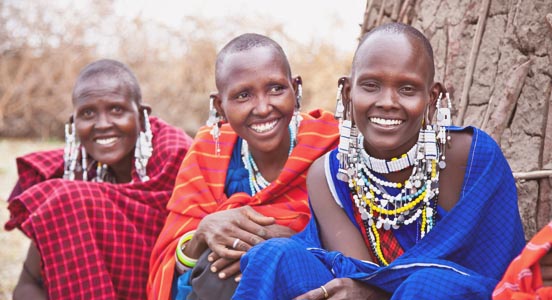
Be Ready To Meet Beautiful People!
Africa has it all - be prepared for beautiful people and happy children in a beautiful continent!
I’ve yet to see an unhappy child in Africa. I’m not saying that there aren’t unhappy kids in Africa, but the children I’ve come across in the villages, on the beaches, on the streets are always smiling, laughing, and full of joy. They mostly seem to get a kick out of any foreigner around! My favorite thing to do is make funny faces at them and they’re happy to reciprocate. Most of the African people are warm, friendly, and hospitable. We often found that they are just as interested as us as we are in them. Be prepared for beautiful people and happy children in a beautiful continent.
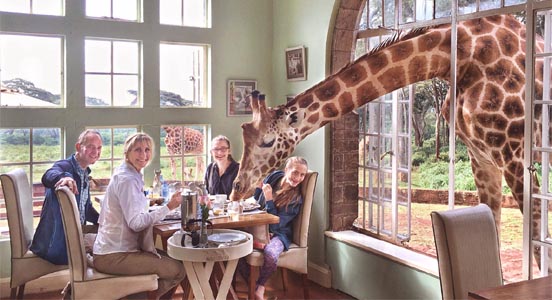
Be Ready To Take Home Sweet Memories
The only man I envy is the man who has not yet been to Africa – for he has so much to look forward to!
Africa, as we all know, is a continent with a huge variety of landscape, climate and culture! It is exciting, addictive and awe-inspiring. When you have had a taste of it, you will never want to leave. Visit Kenya, Tanzania and Zanzibar. The parks will include Amboseli National Park , Lake Naivasha, Masai Mara Game Reserve, Serengeti National Park, Ngorongoro Crater and Zanzibar Beach. Arrive open-minded and ready to experience new things! Things that create lasting memories. After two weeks in this African paradise you will leave with romantic safari memories that will last you a lifetime!
Proven EXCELLENCE through years of EXPERIENCE!
We are Africans. We Know Africa Better. We Love what we DO!
See Also: East Africa Travel Tips By Country
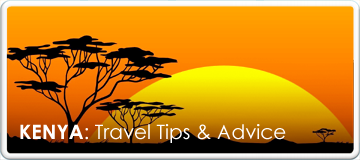
Kenya - The Home of African Safari
Kenya offers most stylish tourism infrastructure in East Africa. From the plains of the Masai Mara to the white sandy beaches of its coast, there is no place like Kenya for an African Safari holiday. Read More...>
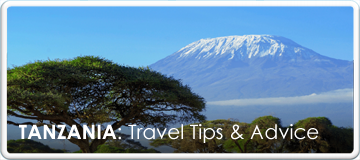
Tanzania - Land of Mt. Kilimanjaro
Tanzania is a breathtaking destination for a first-time safari and for experienced safari enthusiasts alike. The wildlife sanctuaries of Ngorongoro and the Serengeti remains unexploited. Read More...>
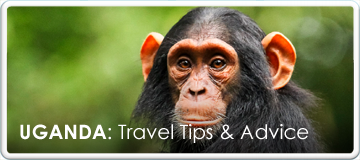
Uganda - Meet Gorillas in the Mist
Many people travel to Uganda to see the Mountain Gorillas that it is famed for. Often referred to as the Pearl of Africa, it is home to half of world's remaining population of gorillas. Read More...>